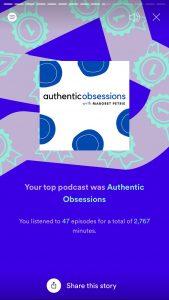Dream Like an Explorer
December 21. 2021
Note From Rochelle
Dear Writers,
In the New Year, I am offering two groups to help you get work done.
The Writing Goddesses group gives you the opportunity to have your work read and commented on every other week by me and your colleagues. Our meetings give you the opportunity to stay accountable to your goals and get help when you get off track.
The Writing Accountability Group will focus on helping you overcome distraction and procrastination, sustain focus, and finish work. This is ideal for writers who want to complete projects, but it can be helpful for anyone who struggles with distraction or focus:
If you have questions about either group, let me know. I’ll be closing the office on Wednesday and will be mostly off until January 10.
Today’s tip talks about approaching the New Year like an explorer!
Happy writing,
Rochelle, the Write Now! Coach
Dream Like an Explorer
by Rochelle Melander

Nothing is a mistake. There’s no win and no fail. There’s only make.
—Corita Kent
 This year, I’ve listened to almost 50 episodes of my friend Margret Petrie’s podcast, Authentic Obsessions. Petrie interviews artists about “the joy and uncertainty that fuels their work.” I’ve loved hearing how artists explore and experiment, trying out ideas and investigating new methods. It’s helped me let go of the product and play with words. It’s helped me embrace Corita Kent’s assurance: “Nothing is a mistake. There’s no win and no fail. There’s only make.”
This year, I’ve listened to almost 50 episodes of my friend Margret Petrie’s podcast, Authentic Obsessions. Petrie interviews artists about “the joy and uncertainty that fuels their work.” I’ve loved hearing how artists explore and experiment, trying out ideas and investigating new methods. It’s helped me let go of the product and play with words. It’s helped me embrace Corita Kent’s assurance: “Nothing is a mistake. There’s no win and no fail. There’s only make.”
As you reflect on 2021 and imagine a New Year, I want you to take on the mindset of an explorer. Embrace experiment, discovery, and play. Here’s how:
Step One: Explore Regrets and Curiosities
Great explorers don’t always reach the top of the mountain or find the hidden treasure. Sometimes they get hurt, lost, or worse. How do explorers deal with regret or failure? In an article in National Geographic about failed explorers, Hannah Bloch said: “Failure—never sought, always dreaded, impossible to ignore—is the specter that hovers over every attempt at exploration. Yet without the sting of failure to spur us to reassess and rethink, progress would be impossible.”
As she says, “Negative results can eventually give rise to positive outcomes.”
Make a list
List anything you regularly regret: what do you wish you had done, accomplished, or written? Regrets often show up as jealousy, anger or annoyance toward other people. If you felt offended by an author who posts about his or her success, it might be a sign that you’re not happy with the amount of time you’re writing.
Reflect
Once you have a list of regrets and curiosities, ask:
- What do I think that action or adventure would have brought me?
- What do I need to pay attention to? What dreams can I rescue from this situation? What can I learn from this failure?
Step Two: Imagine possibilities
Author and modern-day explorer Mikael Strandberg says this about vision, “You need a vision, an idea that differs from most others. Few people are born with a vision. You create your own visions and ideas through intense, careful and thorough research by reading, studying and talking to people.”
Dream
Begin with a dreaming session. Ask “what if” about every idea that surfaces—even if it sounds crazy—and see what comes up. You might have a list of statements like:
“What if I spent the next three months working on my novel? What if I applied for that MFA program? What if I moved to Spain to write? What if I took a class on copywriting? What if I wrote at coffee shops? What if I wrote up my process for marketing widgets? What if I started a business?”
List
Write down anything you’re persistently curious about, ideas and stories you wish you had time to explore.
Explore
Search for ideas and opportunities that stir your sense of adventure. Wander through libraries, bookstores, and websites. Watch movies and listen to podcasts. Talk to people who have taken great adventures. Read books. Pay attention to what stirs your imagination. Add anything that inspires you to your “what if” list.
Step Three: Choose your adventure
Once you have explored the ideas that resonate most with you, choose your adventure.
Pro tip: Remember, your adventure doesn’t have to be something nearly impossible, like summiting huge mountains. Maybe you’ll decide that this will be the year you write a novel, compose a poem a day, or read the classics.
And then? Figure out what you need to make this adventure happen—and do it.
Take on that adventure like an explorer. Go all in.
One more thing
If you need an accountability partner for your adventure, consider joining one of my groups:









